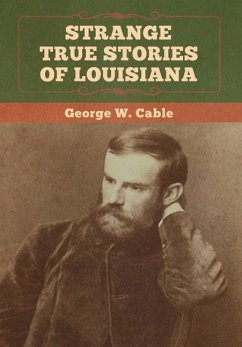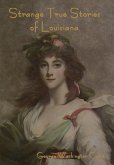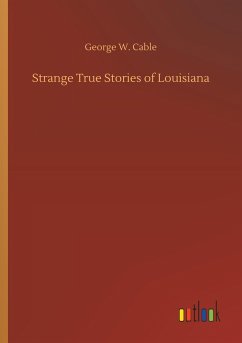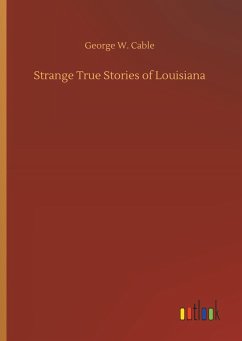George Washington Cable (October 12, 1844 - January 31, 1925) was an American novelist notable for the realism of his portrayals of Creole life in his native New Orleans, Louisiana. He has been called "the most important southern artist working in the late 19th century", as well as "the first modern southern writer." In his treatment of racism, mixed-race families and miscegenation, his fiction has been thought to anticipate that of William Faulkner. Cable was friends with Mark Twain, and the two writers did speaking tours together. In 1884 and 1885 they visited Toronto, Canada, twice, on a reading tour known as the "Twins of Genius" tour. Twain said of Cable that "when it comes down to moral honesty, limpid impotence, and utterly blameless piety, the Apostles were mere policemen [compared] to Cable," despite his dark, "indelicate" depictions of society. Twain also mentions Cable in his book Life on the Mississippi: The party had the privilege of idling through this ancient quarter of New Orleans with the South's finest literary genius, the author of "the Grandissimes." In him the South has found a masterly delineator of its interior life and its history. In truth, I find by experience, that the untrained eye and vacant mind can inspect it and learn of it and judge of it more clearly and profitably in his books than by personal contact with it. With Mr. Cable along to see for you, and describe and explain and illuminate, a jog through that old quarter is a vivid pleasure. And you have a vivid sense as of unseen or dimly seen things--vivid, and yet fitful and darkling; you glimpse salient features, but lose the fine shades or catch them imperfectly through the vision of the imagination: a case, as it were, of ignorant near-sighted stranger traversing the rim of wide vague horizons of Alps with an inspired and enlightened long-sighted native. Modern literary historians have said that Cable's treatment of racism in his fiction influenced the later work of William Faulkner and Robert Penn Warren. He has been called "the most important southern artist working in the late 19th century, as well as the first modern southern writer." (wikipedia.org)
Hinweis: Dieser Artikel kann nur an eine deutsche Lieferadresse ausgeliefert werden.
Hinweis: Dieser Artikel kann nur an eine deutsche Lieferadresse ausgeliefert werden.








